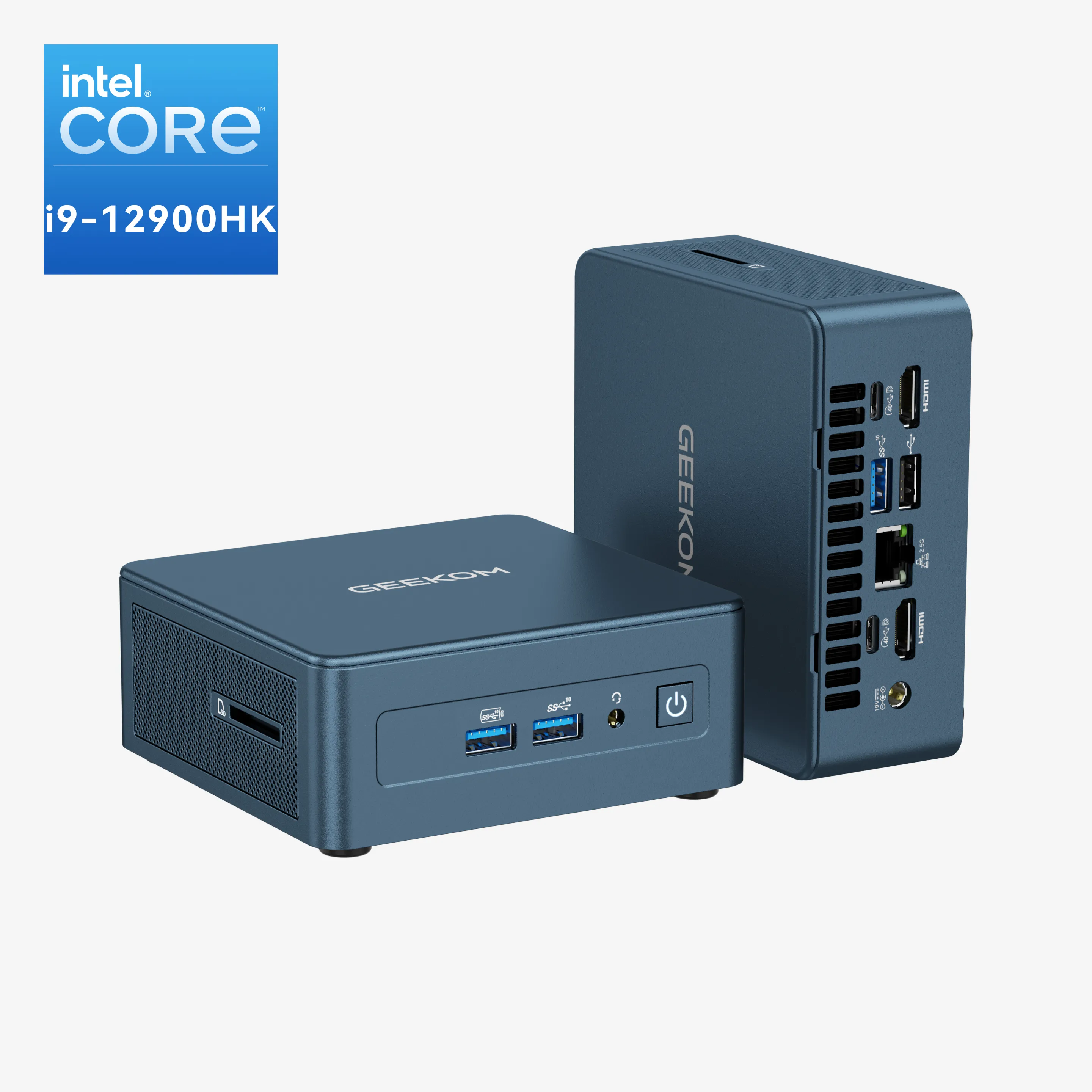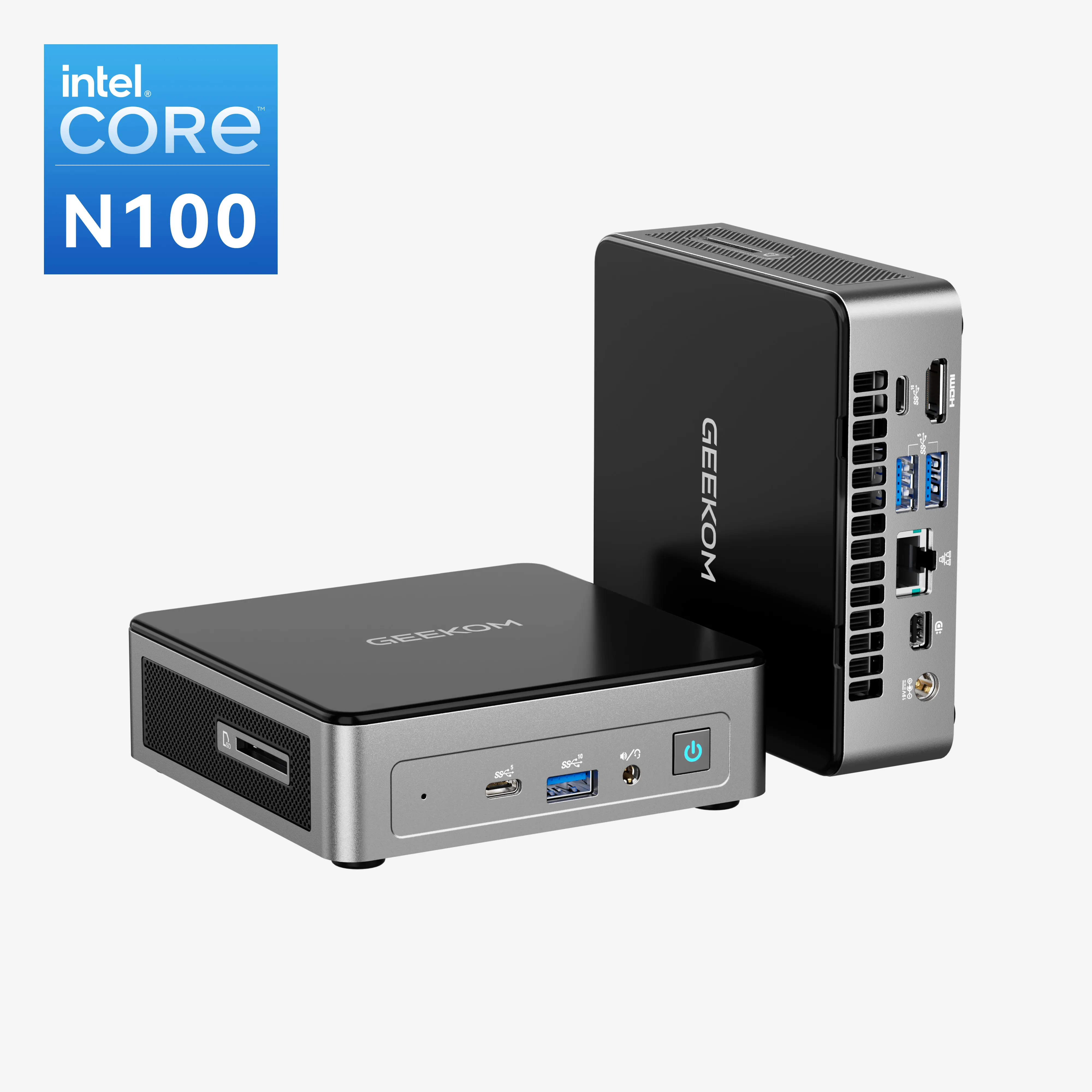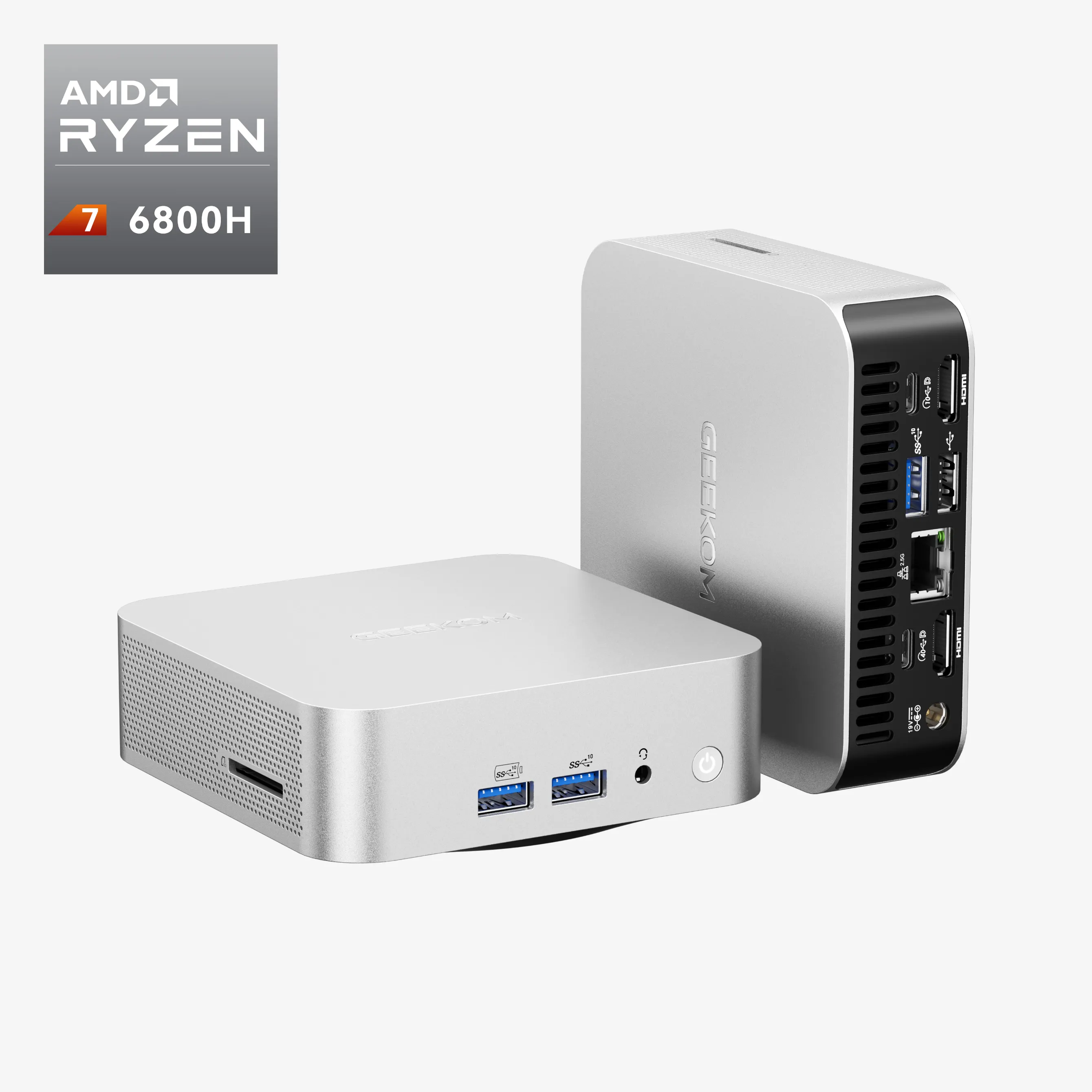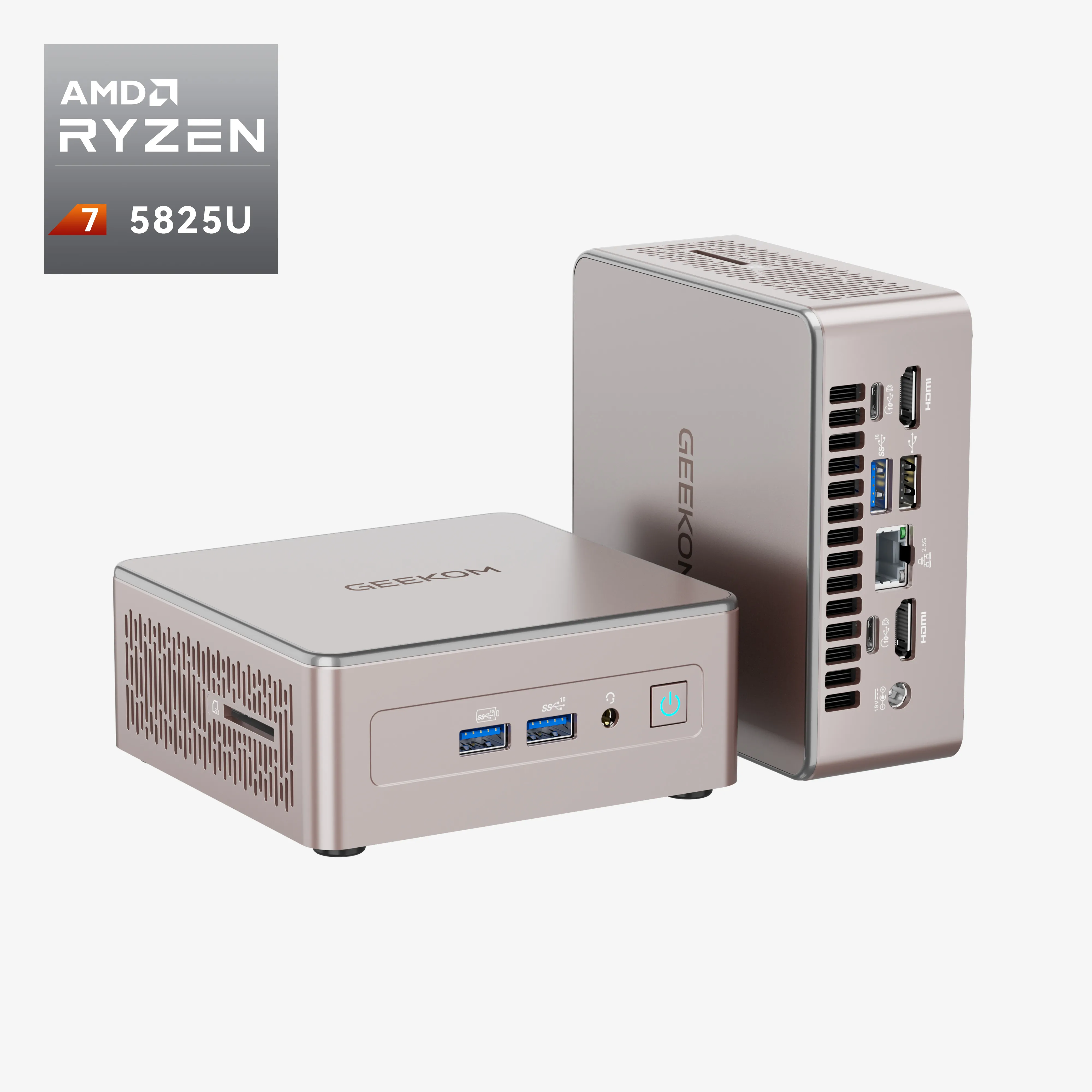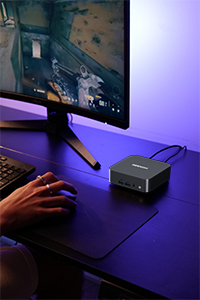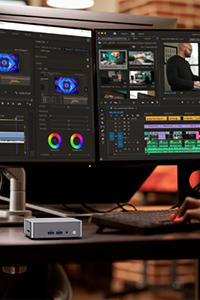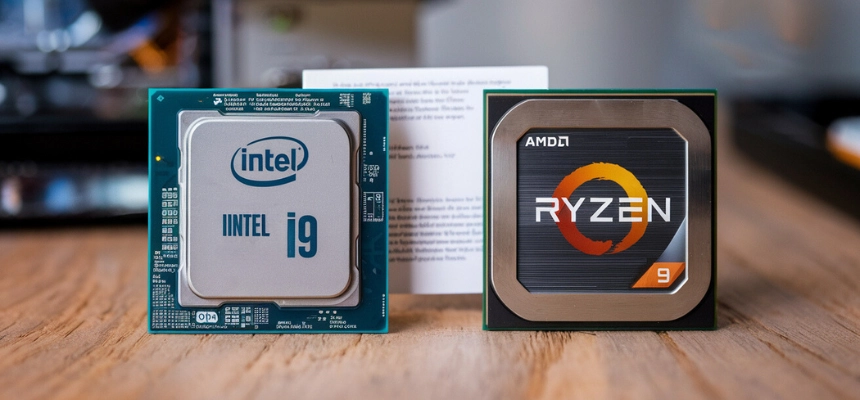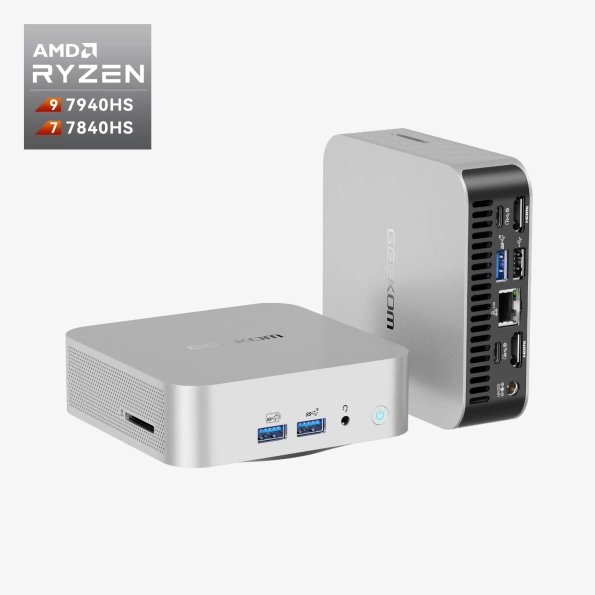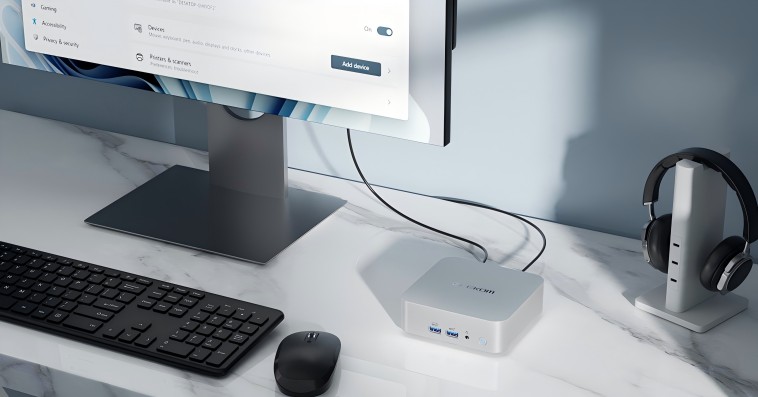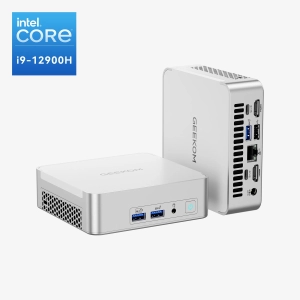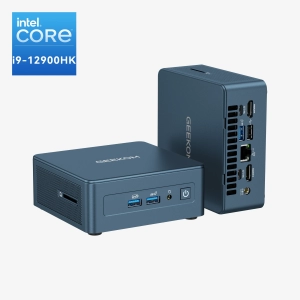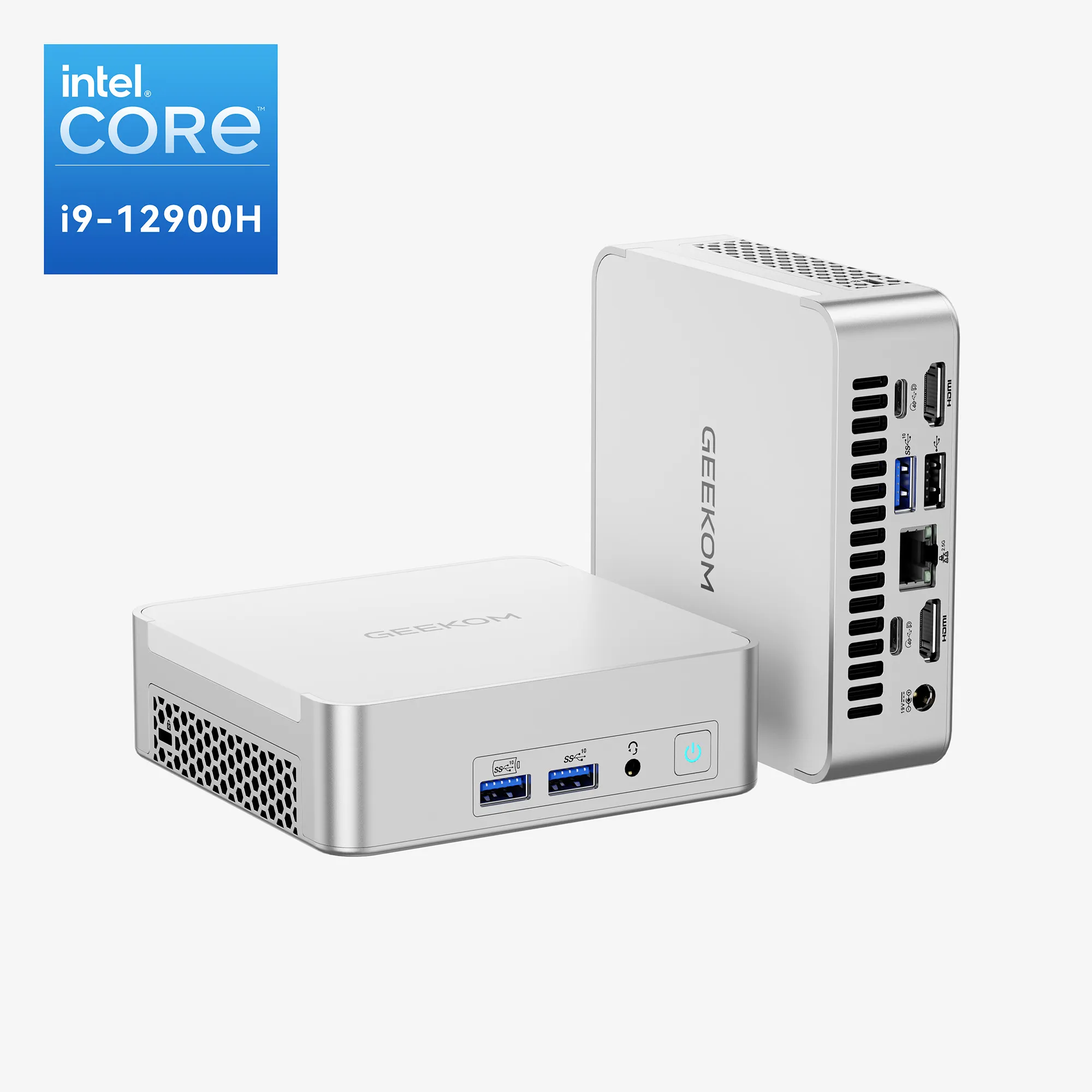Introduction
Intel Core i9 and AMD Ryzen 9 series represent the skirmish at the very forefront of CPU innovation, aimed at gamers, content creators, and professionals demanding top-tier performance. Intel and AMD have both pushed the boundaries of what is probable by advancing the realm amidst the incorporation of higher clock speeds, more cores, and other advanced features while enhancing efficiency.
In this comparison, we will outline the specifications and performance benchmarks of some of the most anticipated and demanding CPUs, in other words, the flagship series from Intel and AMD. Thereafter, we will establish a clear comparison of all the relevant features: specification, performance benchmark, efficient utilization, power consumption, and technical advancement, before rendering value judgments on which of the CPU series is most suitable for your requirements.
This comparison will: provide an informed basis upon which to make your choice, whether you iron for gaming performance, the most efficient content creation processor, or the most robust professional workloads.
I9 Vs Ryzen 9: Specifications Comparison
Key Specifications
| Feature | Intel Core i9-13900K | Intel Core i9-14900K | AMD Ryzen 9 7900X | AMD Ryzen 9 7950X | AMD Ryzen 9 7950X3D |
| Cores / Threads | 24 (8P + 16E) / 32 | 24 (8P + 16E) / 32 | 12 / 24 | 16 / 32 | 16 / 32 |
| Base Clock | 3.0 GHz (P) / 2.2 GHz (E) | 3.2 GHz (P) / 2.4 GHz (E) | 4.7 GHz | 4.5 GHz | 4.2 GHz |
| Max Boost Clock | 5.8 GHz | 6.0 GHz | 5.6 GHz | 5.7 GHz | 5.7 GHz |
| Cache | 36 MB L3 | 36 MB L3 | 64 MB L3 | 64 MB L3 | 128 MB L3 |
| TDP | 125W | 125W | 170W | 170W | 170W |
| Lithography | Intel 7 | Intel 7 | TSMC 5nm | TSMC 5nm | TSMC 5nm |
| Memory Support | DDR5-5600, DDR4-3200 | DDR5-5600, DDR4-3200 | DDR5-5200 | DDR5-5200 | DDR5-5200 |
Intel I9 Vs AMD Ryzen 9 Single And Multi-Threaded
The Intel Core i9 series, particularly with models like the i9-12900K and i9-13900K, hybrid architecture consisting of Performance (P) cores and Efficient (E) cores. This arrangement allows the CPU to deal with heavy-duty tasks with the P cores while managing basic background processes with the E cores, hence achieving full optimization for performance and power efficiency. Intel’s Thread Director technology adds to this by directing specific tasks to the relevant cores, speeding up the whole process of multitasking and improving efficiency. The other specifications for the i9 series include the highest clock speed with the i9-14900K reaching up to 6.0 GHz as its single-core performance and the games that work on high clock speeds. these CPUs are based on the Intel 7nm process and promise better performance and power efficiency as compared with their predecessors, hence keeping them up-to-date for speedy changing markets.
On the other hand, the AMD Ryzen 9 series, represented by models such as the Ryzen 9 7900X, 7950X, and 7950X3D, gives much higher performance. The Ryzen 9 CPUs, with high core and thread counts (the 7950X and 7950X3D supporting up to 16 cores and 32 threads), are well-suited for multi-threaded applications like video editing, 3D rendering, and heavy simulations. AMD’s 3D V-Cache technology, most especially in the Ryzen 9 7950X3D, notably increases the amount of L3 cache available, which significantly improves performance in cache-sensitive applications and games. Starting with high base clock speeds of 4.2 GHz and boost frequencies of up to 5.7 GHz Ryzen 9 series packs a mighty punch through a range of tasks. Even so, AMD has proven to perform high while being also efficient due to TSMC’s 5nm technology that makes it balanced in terms of performance and heat dissipation.
The Intel Core i9-13900K, for instance, has 24 cores and 32 threads, as opposed to the 12 cores and 24 threads of the AMD Ryzen 9 7900X. As a result, it stands out even more when it comes to multi-threaded tasks and high-performance computing. Meanwhile, it is somewhat needless to mention that the AMD Ryzen 9 7900X has a base clock speed of 4.7 GHz compared with 3.0 GHz for the Intel i9-13900K, which is capable of single-threaded performance at or above that of the core i9-13900K for gamers or applications relying on higher clock speeds.
While the i9-14900K pushes to 6.0 GHz if compared with the AMD Ryzen 9 7950X, the boost clock speed for the latter is limited to 5.7 GHz, and hence i9-14900K has gained an unbeaten performance in single-threaded application rankings. But the Ryzen 9 7950X hugs glory in multi-core application settings and it is good for content-creating designers and professional workloads requiring a much higher core count.
When making a comparison between Intel Core i9-14900K and AMD Ryzen 9 7950X3D, the combination of the 3D V-Cache on the Ryzen 9 7950X3D considerably enhances L3 cache from 36 MB by the i9-14900K to 128 MB; thus, cache-centric applications and games will gain definitely. The Intel Core i9-14900K thus has excellent single-core performance and power efficiency because of a higher boost clock and proper hybrid architecture, thus being able to meet widely diverse demands.
The conclusion is that both Intel’s Core i9 and AMD’s Ryzen 9 series have made exciting technological strides and advancements. The choice made will depend on your needs: Intel’s faster clock compounds and their hybrid architecture provide a slight edge in gaming performance, while AMD’s greater heart count and quasi-technology make it a firm competitor for professional workloads in content creation and multi-threading tasks.
Intel i9 vs AMD Ryzen 9: Performance Benchmarks
I9 Vs Ryzen 9 – Single-Core Performance
The importance of single-core performance varies during its application in individual-thread-sensitive applications such as many games and selected professional software. Below is a summary of the benchmark scores from popular benchmarking tools:
| Benchmark | Intel Core i9-13900K | Intel Core i9-14900K | AMD Ryzen 9 7900X | AMD Ryzen 9 7950X | AMD Ryzen 9 7950X3D |
| Cinebench R23 (Single-Core) | 2,040 | 2,200 | 1,980 | 2,050 | 2,030 |
| Geekbench 5 (Single-Core) | 2,150 | 2,250 | 2,130 | 2,200 | 2,180 |
| PassMark (Single-Core) | 4,200 | 4,350 | 4,150 | 4,300 | 4,280 |
Ryzen 9 Vs I9 – Multi-Core Performance
Multi-core performance is essential for tasks that can utilize multiple threads simultaneously, such as video editing, 3D rendering, and complex simulations. Below are benchmark scores from popular benchmarking tools:
| Benchmark | Intel Core i9-13900K | Intel Core i9-14900K | AMD Ryzen 9 7900X | AMD Ryzen 9 7950X | AMD Ryzen 9 7950X3D |
| Cinebench R23 (Multi-Core) | 38,000 | 40,500 | 29,500 | 38,500 | 41,000 |
| Geekbench 5 (Multi-Core) | 22,000 | 23,500 | 19,500 | 22,500 | 23,800 |
| PassMark (Multi-Core) | 60,000 | 63,000 | 50,000 | 61,000 | 62,500 |
Intel I9 Vs Ryzen 9: Which Is Better For Gaming?
Gaming performance is often measured in frames per second (FPS) at various resolutions. Below are FPS benchmarks from popular games:
| Game | Resolution | Intel Core i9-13900K (NVIDIA RTX 4090) | Intel Core i9-14900K (NVIDIA RTX 4090) | AMD Ryzen 9 7900X (NVIDIA RTX 4090) | AMD Ryzen 9 7950X (NVIDIA RTX 4090) | AMD Ryzen 9 7950X3D (NVIDIA RTX 4090) |
| Cyberpunk 2077 | 1080p | 135 FPS | 140 FPS | 130 FPS | 135 FPS | 138 FPS |
| 1440p | 115 FPS | 120 FPS | 110 FPS | 115 FPS | 118 FPS | |
| 4K | 75 FPS | 80 FPS | 70 FPS | 75 FPS | 78 FPS | |
| Call of Duty: Warzone | 1080p | 175 FPS | 180 FPS | 165 FPS | 175 FPS | 178 FPS |
| 1440p | 150 FPS | 155 FPS | 140 FPS | 150 FPS | 153 FPS | |
| 4K | 110 FPS | 115 FPS | 100 FPS | 110 FPS | 113 FPS | |
| Fortnite | 1080p | 230 FPS | 235 FPS | 220 FPS | 230 FPS | 232 FPS |
| 1440p | 190 FPS | 195 FPS | 180 FPS | 190 FPS | 193 FPS | |
| 4K | 130 FPS | 135 FPS | 120 FPS | 130 FPS | 133 FPS | |
| Assassin’s Creed Valhalla | 1080p | 110 FPS | 115 FPS | 105 FPS | 110 FPS | 113 FPS |
| 1440p | 90 FPS | 95 FPS | 85 FPS | 90 FPS | 93 FPS | |
| 4K | 60 FPS | 65 FPS | 55 FPS | 60 FPS | 63 FPS | |
| Red Dead Redemption 2 | 1080p | 105 FPS | 110 FPS | 100 FPS | 105 FPS | 108 FPS |
| 1440p | 85 FPS | 90 FPS | 80 FPS | 85 FPS | 88 FPS | |
| 4K | 55 FPS | 60 FPS | 50 FPS | 55 FPS | 58 FPS |
The i9-13900K and i9-14900K processes of the Intel Core i9 series promise a single-core powerhouse, otherwise known as the ideal contenders for gaming or software that largely depend on single-threaded operations. Higher clock frequencies in combination with highly efficient hybrid architecture lead to higher performance in gaming benchmarks with more frames per second in popular titles such as Cyberpunk 2077, Call of Duty: Warzone, and Fortnite, hence making their offerings particularly attractive to gamers and users looking for devices that quicken their day-to-day interaction with computing systems.
Conversely, the 7900X, the 7950X, and the 7950X3D within the AMD Ryzen 9 family hit a trajectory of shine as far as multicore performance is concerned; these CPUs are therefore the best in the world for content creators and professionals who want serious multi-threaded performance. With greater core counts, larger caches, and improved technologies such as the 3D V-Cache, AMD Ryzen 9 CPUs are delivering remarkably strong performance across video editing, 3D rendering, and other demanding applications. In rendering timings and overall productivity for users working with professional workloads and content creation, the Ryzen 9 series has made great strides forward since early last year.
What Circumstances Would You Choose An i9 Or Ryzen 9?
For Gaming
Notably, for gamers looking at a choice between the Intel Core i9 and the AMD Ryzen 9 series that would shape the gaming experience, the Intel Core i9-13900K and i9-14900K often give a large FPS lead in many of the popular games due to their superior single-core performance and clock speeds. Clear evidence could be picked sighting games like Cyberpunk 2077, Call of Duty: Warzone, and Fortnite, where frames go higher for Intel CPUs, thereby leading to smoother gameplay along with better responsiveness. That hybrid architecture of the latest CPUs from Intel further guarantees that utilization of cores is very upright, hence balanced performance is ensured concerning gaming and background tasks.
Still, AMD’s Ryzen 9 series, especially the 7950X and 7950X3D, will see no disrupted state in gaming. While they may not always match Intel’s single-core performance, their higher core and thread counts can come in handy when games optimize for multi-threading. Compounding that is the cache-sensitive games wherein the 7950X3D squeezes advantages out of those extra layers of V-Cache technology. Those who stream or otherwise run multi-threaded tasks during their gaming will find a suitable option in the form of the Ryzen9 series, which is Champion in providing extra cores.
For Content Creation
Content creators generally need a CPU capable of taking on intensive workloads, involving video editing, 3D modeling, and graphic design. In this area, AMD’s Ryzen 9 series, most notably the 7950X and 7950X3D, takes the lead, with their high core counts and great threading numbers. This offers superb multi-threaded performance to programs like Adobe Premiere Pro, Blender, and Autodesk Maya, resulting in high-speed rendering times and increased productivity. The large L3 cache, further, makes the Ryzen 9 7950X3D a killer choice for cache-intensive applications, thus any professional looking for top performance during intense workflows will want to use this CPU.
Intel’s Core i9 series specializes in content creation. This is apropos because high single-core performance creates a strong task vector. The i9-13900K and i9-14900K can do video editing and 3D rendering effectively when attached to faster storage and memory. However, with ultra-high multi-threaded performance, a Ryzen 9 CPU will sound better to consumers who are using several competing applications at once.
For Professional Workloads
For professional workloads such as software development, data analysis, and scientific simulations, the choice between Intel and AMD CPUs can depend on the specific requirements of the tasks. AMD’s Ryzen 9 7950X and 7950X3D paired with superior multi-core performance are ideally suited to applications that can leverage high core counts and large caches. For example, compiling large codebases running virtual machines and performing complicated simulations show an appreciable performance improvement.
Intel’s Core i9 series i9-14900K among others also still dominates professional workloads through their very surely single-core performance with an efficient hybrid architecture. For tasks that depend on single-threaded performance or require a balance of single- and multi-threaded capabilities, Intel’s CPUs provide versatile solutions. Furthermore, Intel’s advanced technologies such as Thread Director and AI acceleration can substantially improve performance in specific professional applications, making the Core i9 series competitive regarding professional tasks.
General Productivity
When it comes to any basic productivity tasks, like browsing the web, using suite applications, and consuming multimedia content, both AMD and Intel CPUs offer more than enough performance. The decision between the two ultimately comes down to user preference and specific use cases. The Intel Core i9 series boasts high single-core performance, which provides a fast and responsive experience for incidental work in daily life. Its efficient hybrid architecture ensures smooth multitasking, which makes switching between applications a hassle-free experience without any perceptible lags.
The Ryzen 9 series of CPUs provides respectable performance for general-purpose productivity workloads, as well as higher core counts for users who frequently keep multiple applications running at any one time. Multi-threading performance is also very high for Ryzen 9 CPUs, allowing very heavy productivity tasks to be handled without breaking a sweat repeatable, seamless user experience as a result.
The Price Of Intel i9 And Ryzen 9
| CPU Model | Price (Approximate) |
| Intel Core i9-13900K | $589 |
| Intel Core i9-14900K | $699 |
| AMD Ryzen 9 7900X | $549 |
| AMD Ryzen 9 7950X | $699 |
| AMD Ryzen 9 7950X3D | $799 |
Value Proposition
Intel Core i9-13900K: On sale for approximately $589, the competent i9-13900K is an incredibly good single-core and multi-core processor and provides rigorous competition for both gaming and small worker workloads. With the hybrid architecture, it can efficiently deal with a balance of workloads, thereby making a powerful statement in offering worth the price, particularly with gamers and general consumers.
Intel Core i9-14900K: At around $699, this processor is one of the high-end options needed namely with unrivalled performance. Best in single-core tasks and gaming with a 6.0 GHz Boost Clock. The i9-14900K gives great value to buyers looking for an out-and-out solution for gaming and single-threaded applications.
If you think it’s expensive, then a mini PC is the best solution, they tend to offer the best value for money and performance.
AMD Ryzen 9 7900X: Beginning with a pricing of $549, the Ryzen 9 7900X puts in a rather great performance in multi-core workloads at a somewhat lesser cost than its comparables from Intel. This is an excellent choice should your case priority be multi-threaded applications coupled with content creation, providing some balance of cost and performance.
AMD Ryzen 9 7950X: Priced similarly to the i9-14900K at $699, the Ryzen 9 7950X shines in multi-core performance, making it ideal for professional workloads and content creation. Its higher core count and advanced features like Precision Boost provide excellent value for users who need robust multi-threading capabilities.
AMD Ryzen 9 7950X3D: At $799, the Ryzen 9 7950X3D is the most expensive among the compared CPUs. However, its 3D V-Cache technology offers unique advantages in cache-sensitive applications and certain gaming scenarios, making it a worthwhile investment for users who need the highest performance in these specific areas.
- AMD Ryzen™ 9 7940HS
- AMD Radeon™ 780M Graphics
- Dual-channel DDR5 5600MT/s, up to 64 GB
- M.2 2280 PCIe Gen 4 x 4 SSD, up to 2TB
- Wi-Fi 6E and Bluetooth® 5.2
- Support Quad Display
Conclusion
In summary, this leads us to conclude that the choice for either Intel Core i9 or AMD Ryzen 9 CPU will be entirely dependent upon one’s individual needs and budget.
The Intel Core i9-13900K and i9-14900K are ideal for gamers and others who focus on single-core performance and wish to achieve high FPS in games. With their high clock speed and efficient hybrid architecture, they provide top-of-the-line gaming performance alongside an efficient system response.
They are better options for content creators, professionals, and individuals requiring strong multi-core performance and thus coupled with a more significant number of cores: AMD Ryzen 9 7950X and 7950X3D invoke those cores, plus implement modern technologies for 3D V-Cache. Such setup renders performance in multi-thread applications, rendering tasks, and intricate simulations at very high levels. The Ryzen 9 7900X offers great value as well for those who require strong multi-threading capabilities, and its cost is relatively low.




